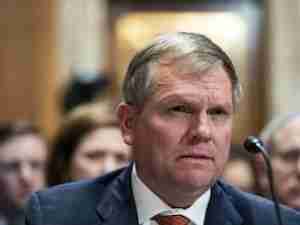Putin confidant Yakunin unexpectedly quits powerful railway post
By: Reuters | Aug 18 2015 at 12:34 PM | Intermodal
MOSCOW - Vladimir Yakunin, the powerful head of Russia’s state railways and an old friend of President Vladimir Putin, is to leave his post to become a senator, a rare and unexpected reshuffle in the Kremlin’s inner circle.
The move, revealed while Yakunin was on holiday, appeared to be a significant demotion for a man who has known Putin since they set up a cooperative of lakeside mansions for the elite in St Petersburg in the 1990s, and was named by the U.S. Treasury as his “close confidant”.
Putin himself did little to dispel the sense of surprise. He told reporters in Crimea on Tuesday that the move had been Yakunin’s choice, but added: “I have yet to speak to him about it.”
After 10 years spent controlling a state firm turning over $40 billion by transporting output from the huge energy, mining and farm sectors, the 67-year-old will now run for a largely ceremonial post as senator for the Kaliningrad region - a Baltic territory cut off from the rest of Russia.
In a letter to staff seen by Reuters, Yakunin said he had been “offered the chance to continue working on protecting the rights of the country’s citizens ... as a representative in the supreme body of legislative power”.
Although the Federation Council, the upper house where senators sit, has few formal powers, that could change after next year’s parliamentary election, perhaps if Putin wanted to line Yakunin up for a more political role ahead of the 2018 presidential election.
A source close to Russian railways said that, if he won the by-election for the Kaliningrad seat, Yakunin could become deputy speaker of the house.
FALL FROM GRACE?
However, several commentators said Yakunin, who signed a new three-year contract with Russian Railways only last year, appeared to have fallen from grace.
“It was totally unexpected. There was not a single rumour inside the company,” said a Russian industry source close to the railways, noting that no successor had been named. “Even yesterday, top management didn’t know anything.”
Yekaterina Shulman from the Presidential Academy of National Economy and Public Administration said Russia’s deep economic recession, triggered by low oil prices and Western sanctions over Ukraine, was fuelling infighting among Kremlin clans.
“His position was very big ... It involved huge money. There will be plenty of contenders for such a juicy pie,” she told the radio station Ekho Moskvy.
“The infighting is on the rise and ... and we will be seeing unexpected departures more and more often of people who we thought were untouchable.”
Apart from Yakunin, Putin’s inner circle consists of the banking and industrial magnates Gennady Timchenko and the Rotenberg and Kovalchuk brothers as well as Igor Sechin, head of the state oil giant Rosneft.
Having served as a Soviet diplomat at the United Nations in the 1980s, Yakunin was one of those who seized on the chaos following the collapse of communism.
PERSONAL SANCTIONS
He has never disclosed his salary but Russian anti-corruption bloggers calculated that it could be as high as $15 million a year.
When Putin had to step down from the presidency in 2008 after serving two consecutive terms, Yakunin was even flagged as a possible successor.
So close was he to Putin that he was one of those singled out by the U.S. Treasury last year for personal sanctions after Russia invaded the Crimean Peninsula and annexed it from Ukraine.
“I am in good company,” he responded in his blog. “I cannot hide the fact that I felt flattered. All the people on the list are notable people, people who have done a lot for Russia.”
But Russian Railways has been plagued by problems on his watch, not least allegations of widespread corruption.
In 2009, Yakunin survived the public fallout from a derailment on the flagship high-speed rail line from Moscow to St Petersburg in which more than two dozen people were killed, a crash later blamed on terrorists.
A Reuters investigation found last year that under Yakunin, Russian Railways had paid billions of dollars to private contractors with shady owners and little or no presence at their registered headquarters.
Yakunin has always dismissed allegations of corruption. He said the problem was worse in the West, because there was more there to steal.
(Additional reporting by Denis Pinchuk in Moscow and Denis Dyomkin in Crimea; Editing by Kevin Liffey)







